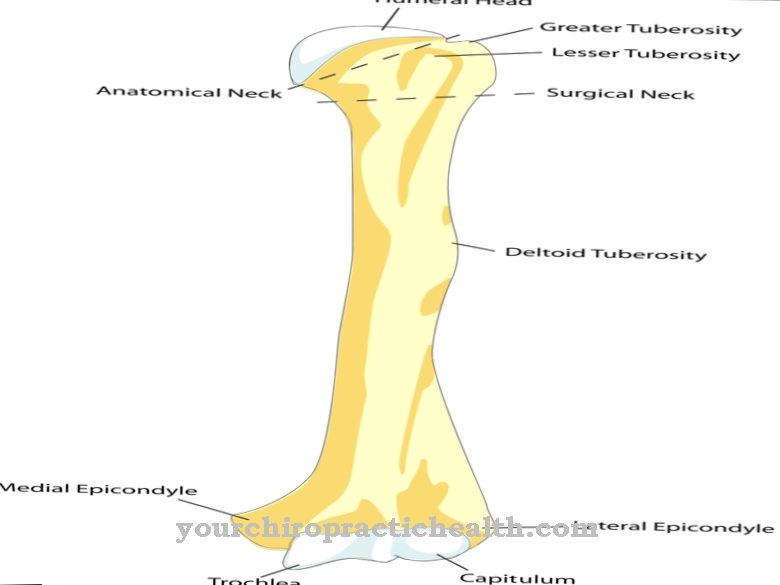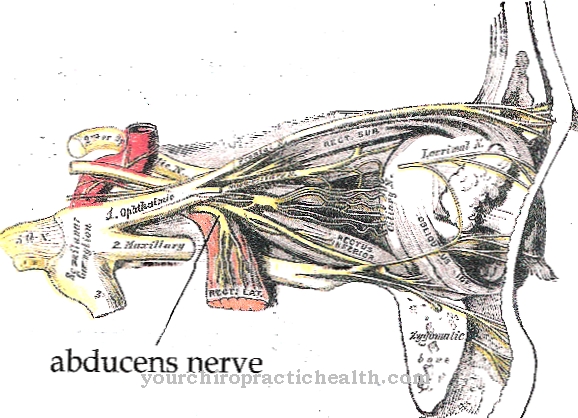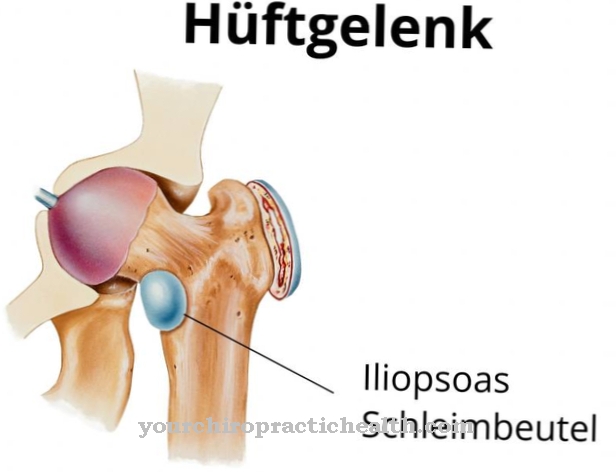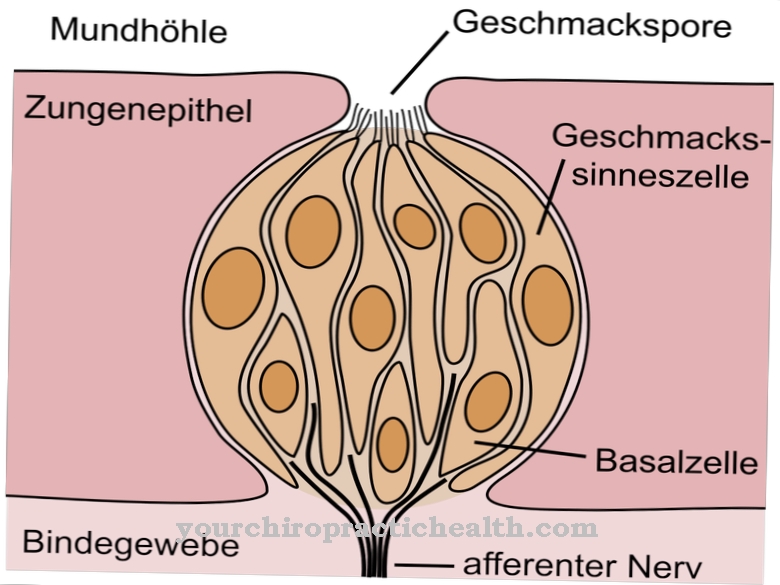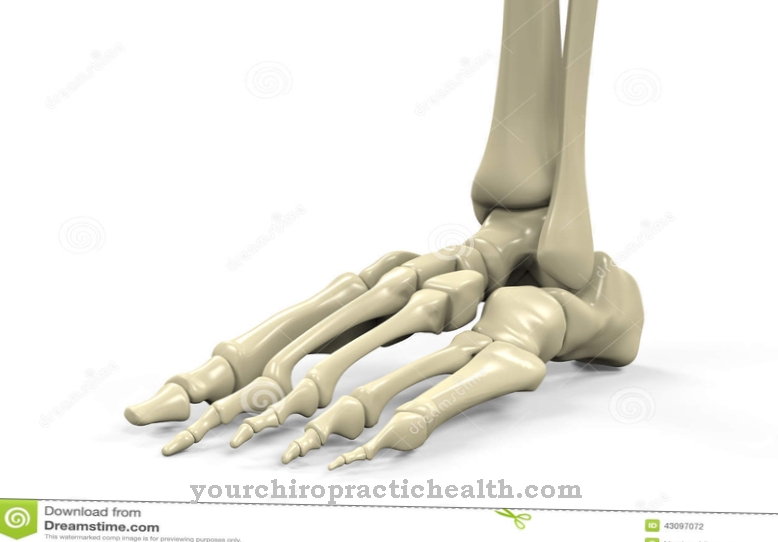At saliva it is a secretion that is produced in the oral cavity by salivary glands. It is 99 percent water, but it has very important functions. A low level of saliva production can therefore not only feel uncomfortable, at the same time, such a condition can result in health disadvantages.
What is saliva
Every day the human body produces about 1 to 2 liters saliva here. The exact amount depends on the individual food intake. In general, however, 500 milliliters are considered to be the basal secretion. The blood plasma is the basis for the production of the liquid.
The salivary glands remove certain substances from the blood plasma in the course of processing and in turn supplement others. Humans have three large salivary glands and a large number of small ones. The large salivary glands are the parotid, mandibular and sublingual glands. Around 90 percent of saliva is produced in these three salivary glands.
In addition, the saliva is differentiated into two forms. The categorization depends on the nature of the saliva.
- Munizous saliva is slimy to viscous
- Serous saliva is liquid, watery - this is particularly suitable for digestion.
Anatomy & structure
The majority of saliva consists of water. The other components, which only make up one percent, give it the ability to fulfill its important functions. The additional substances are mainly proteins.
Mucin is important for the consistency of saliva. Mucin is a specific mucous substance that helps to protect the mucous membranes from irritation. In addition, it is responsible for ensuring that the chopped food becomes slippery as it is processed in the mouth.
Other proteins found in saliva are amylases and ptyalin. These also support the digestive process. In addition to proteins, there are also other substances in the liquid, for example components of the immune system.
Certain electrolytes are also important. Sodium, potassium, calcium and chloride ions should be mentioned here in particular. But urea, uric acid and ammonia also play a role.
The pH of saliva measures around 6.0 to 6.9. If more saliva forms through ingestion of food, this has a pH value of up to 7.2. The sodium ions are responsible for this process. If the body does not have time to remove these from the saliva, the pH level rises.
Tasks & function
Saliva is involved in all processes in which it plays an important role. Thus it is already crucial for digestion. Only when the food is mixed with the liquid can the components of the food dissolve.
This turns the food into a pulp, which can be swallowed without any problems. In addition, digestion begins in the oral cavity. The main focus here is on large carbohydrates. The enzyme ptyalin, which is present in saliva, can break down the carbohydrates into smaller parts. Digestion is started while chewing.
In addition, the saliva helps to properly perceive the taste of the food. The flavors contained in the food dissolve in the saliva and in this state reach the taste buds. At the same time, the body's own fluid has protective functions.
Thanks to its slightly alkaline pH value, it can neutralize acids, which means that teeth and gums are less affected. To a certain extent, saliva also protects against tooth decay. Saliva contains minerals that are also found in teeth. This allows him to harden the existing tooth enamel. This is particularly important in the context of demineralization.
It is also possible for the saliva to make minor damage to the teeth disappear. Fluoride and rhodanide are primarily responsible for this task. Saliva also has a supportive effect on general health.
It repels germs, bacteria and fungi, which could otherwise lead to diseases. Thus it has a cleaning and disinfecting effect. Without saliva, humans would not be able to speak, taste or smell.
Ailments & illnesses
The main complaints that can be associated with saliva production are the production of too little fluid. On the one hand, the oral cavity feels dry, on the other hand, the teeth are no longer adequately protected against tooth decay and other pathogens as a result of such a process.
Too little saliva production occurs more often in older people. It is often difficult for affected people to speak, swallow, and taste. There can be different causes here. Consuming too little water has the potential to trigger these complaints. But certain drugs also carry the risk of causing such symptoms.
The occurrence of insufficient saliva production is known as hyposalivation. In return, it is also possible that too much saliva is produced. These complaints are called hypersalivation. When eating, more saliva is produced than at rest.
This is due to the fact that the saliva helps digestion and makes the food slippery. The occurrence of excessive salivation is also possible due to excitation. But here too, drugs can be to blame for the symptoms. While too little saliva can promote tooth decay, high production has both social and medical disadvantages.
On the one hand, social exclusion due to wet pronunciation cannot be ruled out; on the other hand, skin irritation, coughing and choking can also occur.
If the saliva also increasingly reaches the airways, it provides a breeding ground for the development of pneumonia and infections. Therefore, both low and excessive production of saliva should be treated.

